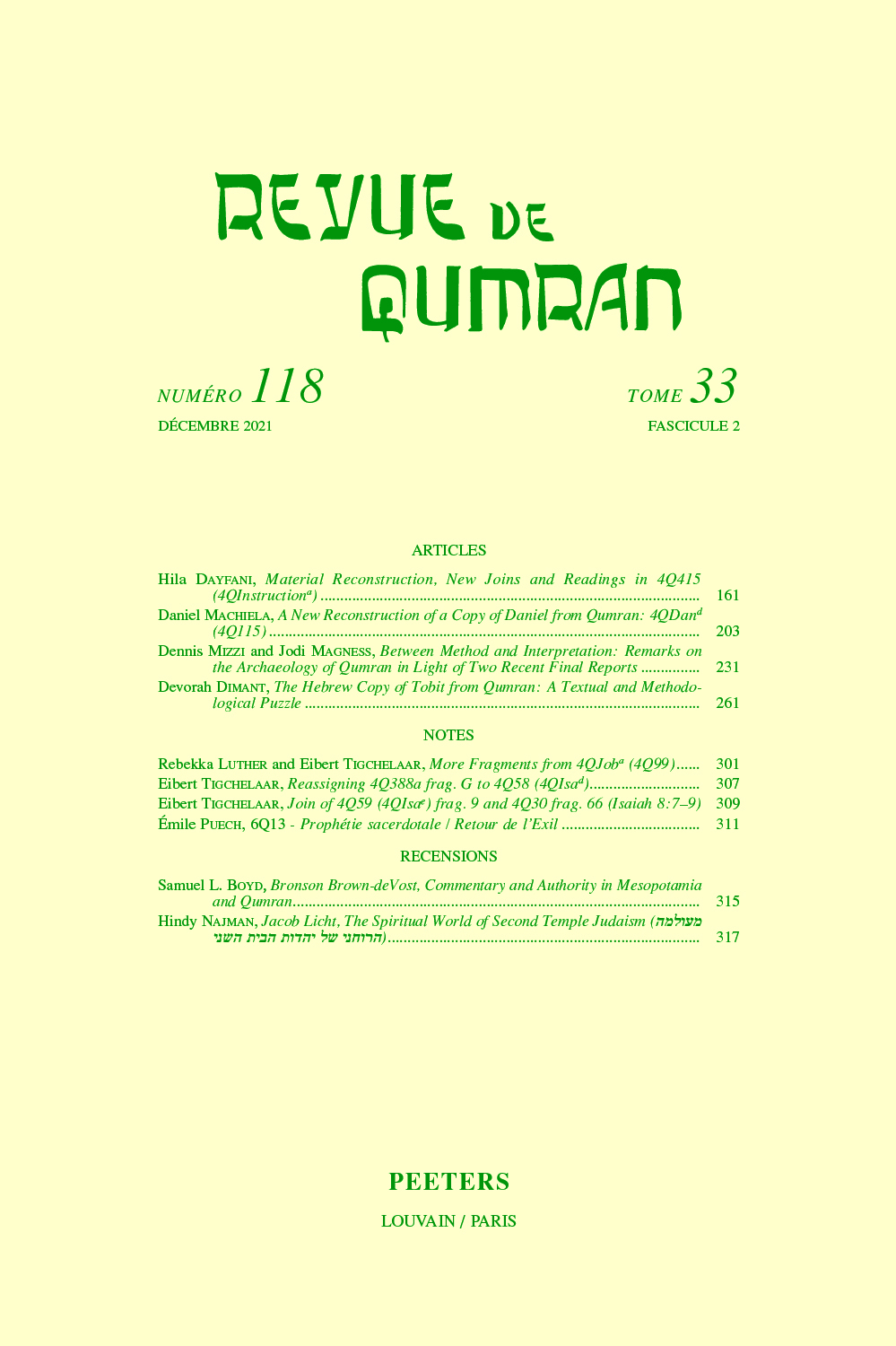 previous article in this issue previous article in this issue | next article in this issue  |

Preview first page |
Document Details : Title: On the Interpolations in the Book of Jubilees Author(s): KUGEL, James Journal: Revue de Qumran Volume: 24 Issue: 2 Date: numéro 94, 2009 Pages: 215-272 DOI: 10.2143/RQ.24.2.3206519 Abstract : A number of recent studies have suggested that the Book of Jubilees may be the product of more than one author: contradictions within Jubilees raise the possibility that this book, like other works of the Second Temple period, may have undergone revision in the course of its transmission. Building on these earlier studies, the present article seeks to identify the source of those contradictions. It distinguishes 29 passages in Jubilees, all of which are characterized by certain stereotypical phrases and other common characteristics. They are the work of an interpolator who sought to incorporate his own ideas and practices into the book. An absolute determinist, he believed that Israel’s history and all the laws of the Torah had been written long ago in the 'Heavenly Tablets'. For this reason he sought to claim, wherever possible, that this or that law found later in the Pentateuch had actually been inaugurated by Noah, Abraham, Jacob, or other early figures. He championed a calendar which required no human sightings of the new moon – its succession of 30-day months, with four additional, extramensual days, had been predetermined for eternity. Similarly, he turned the Feast of Weeks into the Feast of Oaths, thereby eliminating any need for humans to count off seven weeks as prescribed in the Pentateuch. All these changes bear the same stamp and are further distinguished by their unique terminology. In inserting these 29 passages, the interpolator frequently misunderstood or deliberately distorted what the original author of Jubilees had said – thus creating contradictions and inconsistencies in the book as we know it. If these 29 passages are excised, one obtains an altogether smoothly flowing text, and the true nature of the original book of Jubilees may be seen clearly. Its author had a rather different ideology and a very different purpose in writing. |
|


